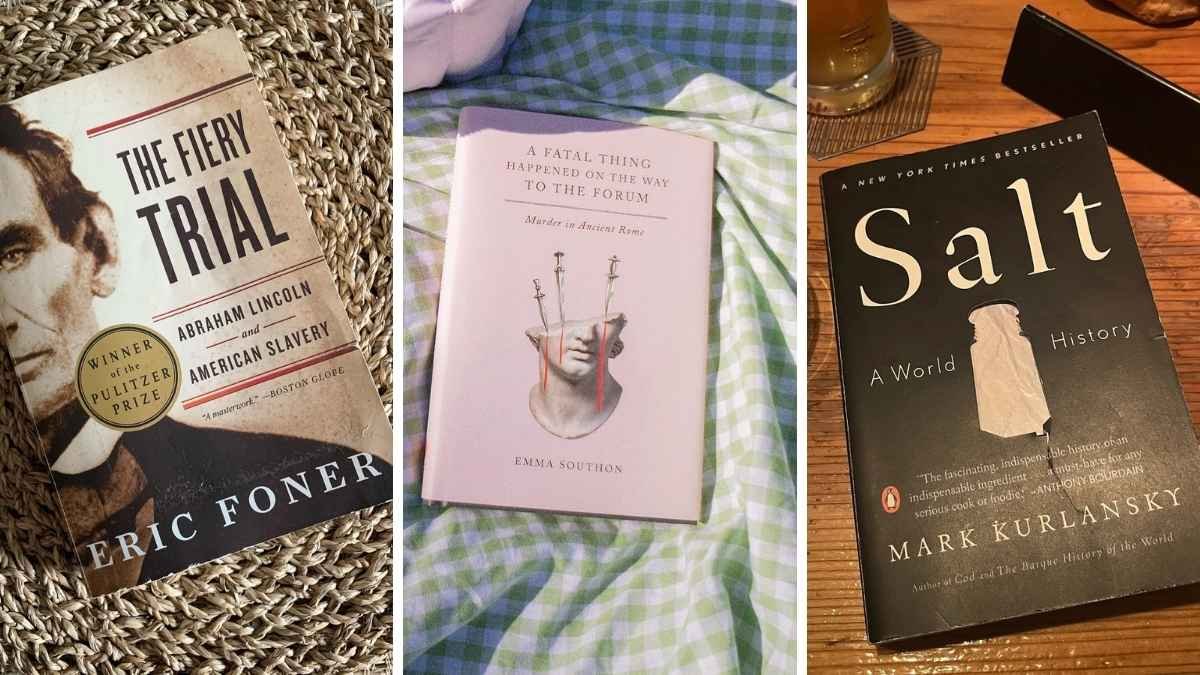
History classes often skim the surface of the past, glossing over uncomfortable truths, marginalized perspectives, and radical ideas. But what if there’s a whole world of untold stories just waiting to be uncovered?
These 10 books dig deep into the cracks of conventional narratives, shedding light on forgotten revolutions, suppressed cultures, and the hidden hands that shaped our world. Let’s explore the first five—and prepare to rethink everything you thought you knew.
1. Lies My Teacher Told Me by James W. Loewen

James W. Loewen’s classic is a must-read for anyone who ever sat through high school history thinking, “This feels… filtered.” Based on a deep analysis of twelve popular U.S. history textbooks, Loewen dismantles the sanitized, often nationalistic narratives that pass as “truth” in schools across America. He doesn’t just point out missing pieces — he shows how textbooks intentionally distort or erase facts, particularly regarding slavery, race relations, and America’s role in global politics.
What makes this book hit hard is how familiar the lies are. The version of Helen Keller do most students learn? Loewen shows how her radical socialism was scrubbed out. Christopher Columbus? Presented as a heroic explorer rather than a ruthless colonizer. This book makes you re-evaluate not only what you know, but why you know it in the first place.
2. A People’s History of the United States by Howard Zinn

This is the book that made thousands question the phrase “history is written by the victors.” Howard Zinn flips the historical lens away from presidents and generals and toward the people on the receiving end of their decisions — workers, Indigenous tribes, enslaved Africans, women, and immigrants. It’s not just a history book; it’s a counter-narrative, rooted in social justice and told with a moral clarity that’s hard to ignore.
While critics claim Zinn is biased, the truth is that’s exactly the point. He doesn’t pretend to be neutral — he argues that no history is neutral, and the real deception is pretending that it ever was. Whether or not you agree with every page, Zinn’s work is undeniably one of the most widely read and challenged books in American historical literature.
3. The Mismeasure of Man by Stephen Jay Gould

If you thought science and history were separate conversations, Gould proves otherwise. The Mismeasure of Man is a searing takedown of the pseudoscientific methods once used to justify racism, classism, and eugenics. From craniometry to IQ testing, Gould explores how “scientific” conclusions were often rooted in deep bias, serving political agendas rather than truth.
The book especially shines when it exposes how flawed data was used to support theories of white superiority, and how these ideas crept into policymaking, education, and even immigration law. It’s technical at times, yes — but written with clarity, wit, and a sense of moral urgency that makes it essential reading for anyone trying to understand the intersection of science, history, and power.
4. The Shock Doctrine by Naomi Klein

Klein doesn’t just re-tell history — she rips the mask off economic imperialism. The Shock Doctrine explores how governments and corporations have used disasters — whether natural or manufactured — to push through radical economic policies while citizens are too distracted or traumatized to resist. From Pinochet’s Chile to post-Katrina New Orleans and post-invasion Iraq, the pattern becomes chillingly familiar.
What makes this book especially potent is its relevance. Klein connects economic theory to real-world suffering, showing how crises are engineered or exploited to reshape societies in favor of the ultra-wealthy. It’s a heavy read, but once you see the pattern, you start noticing it everywhere — including in today’s headlines.
5. The Black Jacobins by C.L.R. James

You might know about the American and French Revolutions, but what about the only successful slave revolt in history? C.L.R. James’ The Black Jacobins is an astonishing chronicle of the Haitian Revolution and the rise of Toussaint L’Ouverture, a former enslaved man who led his people to victory against the French empire. James writes with passion, political insight, and literary brilliance — turning history into something visceral and immediate.
This book was radical when it came out in 1938, and in many circles, it still is. It reframes how we think about revolution, colonialism, and Black agency. If it wasn’t part of your high school reading list — that was no accident.
6. They Were Her Property: White Women as Slave Owners in the American South by Stephanie E. Jones-Rogers

One of the most unsettling books in recent historical scholarship, this work confronts the widely accepted belief that white women were simply bystanders to slavery. Stephanie E. Jones-Rogers makes a devastating case, using primary sources like court records and oral testimonies, to show that white women in the South were not passive beneficiaries — they were active participants and investors in the slave economy. Some even outperformed their husbands in cruelty and business savvy.
This flips a deeply ingrained cultural narrative. By exposing this involvement, Jones-Rogers forces readers to confront the full dimensions of complicity and how gender dynamics were wielded not just in domestic spaces, but in economic systems built on human suffering.
7. The Jakarta Method: Washington’s Anticommunist Crusade and the Mass Murder Program That Shaped Our World by Vincent Bevins

This one is a gut punch. Bevins’ The Jakarta Method uncovers a covert U.S.-backed campaign in Indonesia during the Cold War, where over half a million people were systematically murdered in the name of fighting communism. What’s worse? This model was exported to Latin America, to Africa, and beyond. The “Jakarta Method” became shorthand for eradicating leftist opposition with CIA support, often in democratically elected countries.
Bevins writes with the precision of a journalist and the depth of a historian. He doesn’t sensationalize — he reveals. And in doing so, he exposes how America’s foreign policy was entangled with atrocities that never made it into schoolbooks.
8. The Half Has Never Been Told: Slavery and the Making of American Capitalism by Edward E. Baptist

This book doesn’t just retell the horrors of slavery — it reframes how slavery shaped the very foundation of the modern U.S. economy. Baptist argues, with exhaustive research, that slavery wasn’t a pre-modern relic — it was a cutting-edge engine of capitalist growth, fueling banks, markets, and global trade in the 19th century. The profits didn’t just enrich Southern plantation owners; they built Wall Street and underpinned America’s rise as a global power.
What makes this book controversial isn’t just what it says — it’s how thoroughly it undermines the myth of a morally exceptional America. Even today, this book stirs heated debate among historians and readers alike, which makes it exactly the kind of “forbidden” history that demands attention.
9. Discipline and Punish: The Birth of the Prison by Michel Foucault

French philosopher Michel Foucault isn’t for casual reading, but this book is worth the effort. Discipline and Punish charts how power structures evolved from public executions to the modern prison system, and how surveillance became a key tool of social control. It’s not just about prisons — it’s about schools, hospitals, military barracks — all the institutions that quietly discipline us without needing to lay a hand.
Foucault’s writing can be dense, but his ideas are world-shifting. Once you read this, you start seeing the hidden architecture of power everywhere. It challenges how we think about freedom, punishment, and even what it means to be “normal” — no wonder it’s still considered dangerous in certain academic and political circles.
10. Killers of the Dream by Lillian Smith

Published in 1949 — and widely banned in the Jim Crow South — Killers of the Dream is a bold personal reckoning with racism, religion, and the lies American society teaches children. Smith, a white Southern woman, breaks with her upbringing to write about the psychological costs of segregation — not just for Black Americans, but for the white children taught to believe in moral contradictions from an early age.
Part memoir, part cultural analysis, the book is written with a clarity and emotional depth that still cuts through today. Smith dared to call out the quiet hypocrisies of Southern Christianity and middle-class morality, long before civil rights became a national conversation. That courage, and her refusal to look away, make this a quietly explosive read.







